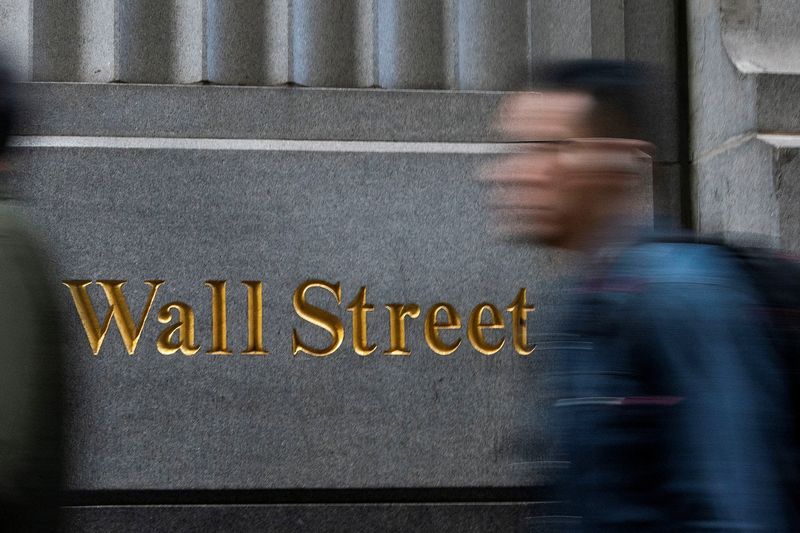A look at the day ahead in U.S. and global markets from Mike Dolan
Dragging up government borrowing costs across the world, the new year spike in long-term U.S. Treasury yields is flashing red as a long-absent risk premium in debt markets re-builds alarmingly amid fiscal policy and interest rate fears.
The New York Federal Reserve's estimate of the 10-year 'term premium' - seen as the compensation investors seek for holding long-term Treasuries to maturity instead of rolling over short-term debt holdings - topped 50 basis points this week for the first time since 2014.
Partly reflecting uncertainty about long-term inflation expectations and debt supply and an incoming U.S. administration intent on tax cuts, immigration curbs and tariff rises, the 30-year Treasury yield hit its highest since 2023 on Tuesday and 10-year yields hit their highest in almost 9 months.
At almost 64bps, the 2-to-30 year yield curve gap on Wednesday reached its widest since the Fed started raising interest rates in March 2022. With this week's latest heavy Treasury debt sales frontloaded due to Thursday's market holiday and high seasonal corporate bond issuance in the background, $22 billion of 30-year 'long bonds' go under the hammer later today.
The more immediate cause of bond market anxiety - which sideswiped stock markets again on Tuesday - comes from the week's persistently 'hot' economic releases - adding concern about future Fed rate cuts as President-elect Donald Trump's economic policies are parsed.
ISM's December survey of U.S. services sector businesses showed activity accelerated in December, while a measure of prices paid for inputs surged to near a two-year high.
And in a big week for U.S. labor market updates, data showed job openings in November grew to 8.098 million, exceeding forecasts for a 7.7 million rise, and higher than October's numbers of 7.839 million.
ADP's private sector job reading for last month and the latest weekly jobless claims numbers are due later on Wednesday ahead of Friday's national employment report. Markets and government offices are closed Thursday for former President Jimmy Carter's (NYSE:CRI) funeral.
'HIGHLY UNUSUAL'
The brisk growth and inflation readouts are pushing back expectations for Fed easing, with futures not seeing another quarter point cut until June and doubting any more this year. Only 38bps of Fed easing is now priced for the whole of 2025.
Minutes from the Fed's latest policy meeting, where policymakers indicated just 50bps of additional rate cuts for this year, are due for release later on Wednesday.
But even given that recalibration, the movement of bond yields - where 10-year yields have risen 100bps since September as the Fed has cut 100bps over the same period - is "highly unusual", according to Apollo Chief Economist Torsten Slok.
"The market is telling us something, and it is very important for investors to have a view on why long rates are going up when the Fed is cutting," Slok told clients, positing fiscal worries, less bond demand from abroad or unjustified Fed cuts as possible reasons.
Rising Treasury yields, meantime, have lifted the dollar anew and also boosted long-term borrowing costs in other G7 economies in the slipstream. Most notably on Tuesday, 30-year British 'gilt' yields hit their highest since 1998.
While 10 and 30-year Treasury yields ticked back a touch early Wednesday, they have retained the bulk of the week's sharp rise.
Adding to the bond market tension, oil prices rose again on Wednesday as supplies from Russia and OPEC members tightened while U.S. crude oil stocks fell last week, market sources said, citing American Petroleum Institute figures.
At 5%, the year-on-year rise in U.S. crude is at its highest since July.
U.S. stock futures recovered a fraction of Tuesday's heavy tech-led losses early today, although Japanese and Chinese bourses fell again alongside a 0.8% drop in emerging markets indexes.
Chinese stock losses were narrowed in late trading there as markets digested Beijing's latest measures to expand the scope of consumer trade-ins. But leading the decline onshore, shares of semiconductor firms fell 0.7% as the U.S. Defense Department expanded the list of firms allegedly aiding Beijing's military.
Back stateside, uncertainties around the policies of the Trump administration were heightened by the President-elect's refusal to rule out using military or economic action to pursue acquisition of the Panama Canal and Greenland, part of a broader expansionist agenda he has promoted since winning election.
Trump also criticized American spending on Canadian goods and military support for Canada, saying the U.S. derives no benefits from doing so, and called the border between the two countries an "artificially drawn line."
With a domestic political hiatus following Canadian Prime Minister Justin Trudeau's decision to stand down as Liberal Party leader, the Canadian dollar remained calm.
In Europe, stocks seemed to buck the wider global nerves and hit three-week highs. European shares advanced on Wednesday, led by heavyweight financial stocks and as defence firms got a boost after Trump called for higher spending from NATO allies.
Trump said he believes European members of NATO should spend 5% of their GDP on the alliance's defense.
Key developments that should provide more direction to U.S. markets later on Wednesday:
* US December ADP private sector payrolls, weekly jobless claims, November consumer credit
* Federal Reserve's Federal Open Market Committee releases minutes of latest meeting

* Federal Reserve Board Governor Christopher Waller speaks
* US Treasury sells $22 billion of 30-year bonds
(By Mike Dolan, editing by XXXX; mike.dolan@thomsonreuters.com)